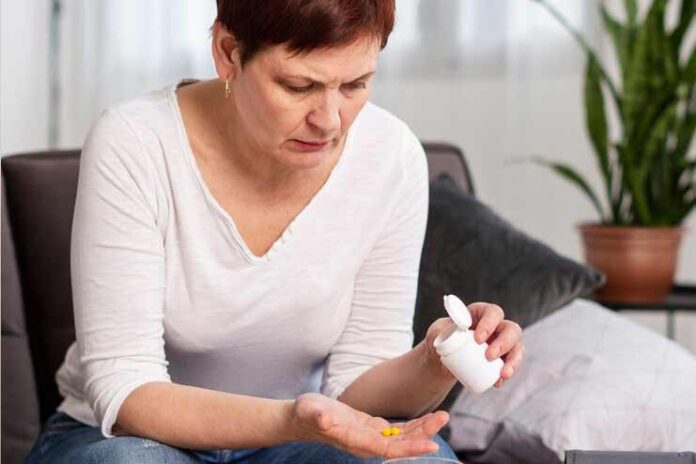Affiliate Disclaimer
Some links in this article are affiliate links. We may earn a small commission if you make a purchase through these links, at no extra cost to you. We only recommend products we find useful to our readersJaundice is a term for the yellowing of the skin and the whites of the eyes. In this condition, body fluids may also take on a yellowish tint. The most common cause of this yellow color is elevated levels of bilirubin, a waste product found in the blood. High levels of bilirubin in the body can even cause a brownish discoloration.
Although jaundice is more common in newborns in the United States, it can affect people of any age and may result from underlying conditions. Jaundice often signals problems with the liver or bile.
Here, we provide key information about jaundice, including its leading causes and symptoms. Read on to learn about home remedies that may help treat jaundice.
What is Jaundice?
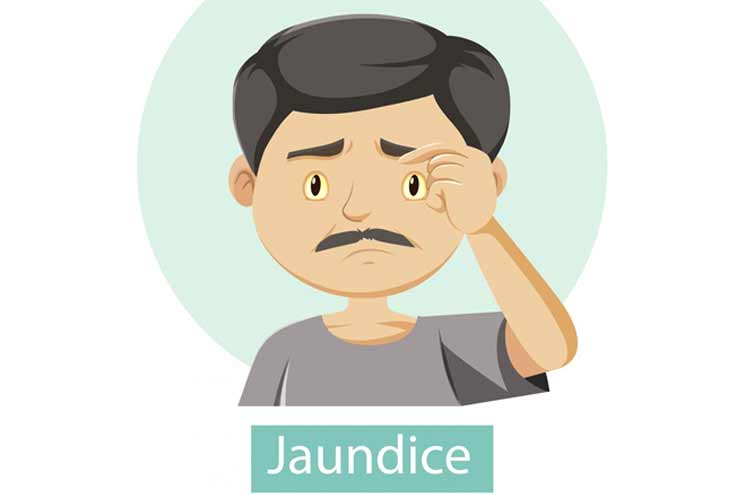
As mentioned earlier, jaundice is the yellowing of your skin along with the white part of your eyes. This mainly occurs when the body fails to process bilirubin properly, which, in turn, happens when there is a problem with your liver. Medically, it is also known as icterus.
Bilirubin is the waste product in your body that remains after eliminating iron from the blood. It is then filtered out of the body after processing by the liver and attaching to various other chemicals. This form of bilirubin is known as conjugated bilirubin.
Through the liver, after mixing with bile, conjugated bilirubin is excreted from the body. This type of bilirubin also provides a brown color to feces.
When there is an excess amount of bilirubin in the body, it starts to leak into nearby organs and tissues, resulting in the development of a yellow color on the skin and eyes. This condition is medically known as hyperbilirubinemia.
What Causes Jaundice?

Jaundice mostly occurs due to an underlying condition that leads to excess bilirubin production or weakens the liver’s ability to remove bilirubin from the blood. Various causes contribute to the buildup of bilirubin in your tissues. Some conditions that can cause jaundice are:
- Bile Duct Inflammation: This condition can disrupt bile secretion and the removal of bilirubin from the blood, leading to jaundice.
- Acute Liver Inflammation: This condition weakens the liver and its ability to eliminate bilirubin from the blood.
- Hemolytic Anemia: In this disease, excess bilirubin is produced as red blood cells begin to break down.
- Cholestasis: In this condition, bile flow to the liver is interrupted, causing bilirubin to remain in the liver instead of being excreted.
- Gilbert’s Syndrome: This condition affects the ability of enzymes to process and eliminate bodily waste.
- Dubin-Johnson Syndrome: This chronic jaundice condition prevents bilirubin from being removed from liver cells.
- Pseudojaundice: This harmless form of jaundice causes yellowing of the skin due to beta-carotene, not bilirubin, and may result from excessive consumption of melon, carrots, and pumpkin.
- Crigler-Najjar Syndrome: This inherited disease damages enzymes responsible for processing bilirubin in the blood.
Symptoms of Jaundice
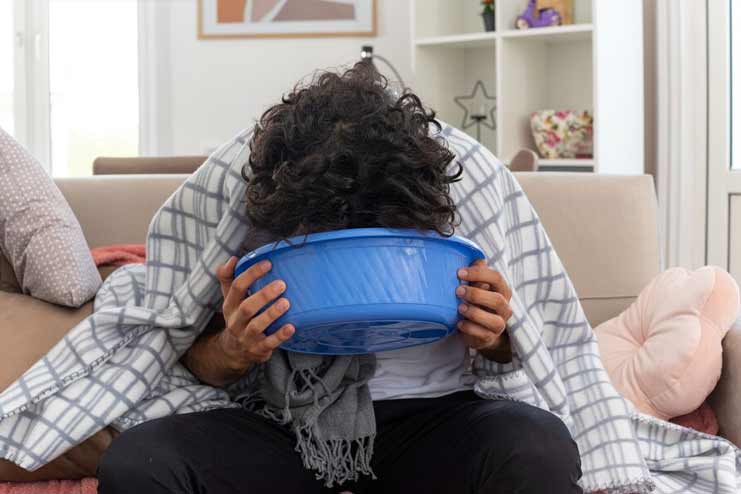
Some common symptoms of jaundice are:
- Dark urine
- Pale stools
- Itchiness
- Yellow-colored skin, which starts at the head and spreads to other parts of the body, including the whites of the eyes
You may also experience some accompanying symptoms of jaundice, including:
- Fever
- Abdominal pain
- Weight loss
- Vomiting
- Fatigue
How is Jaundice Diagnosed?
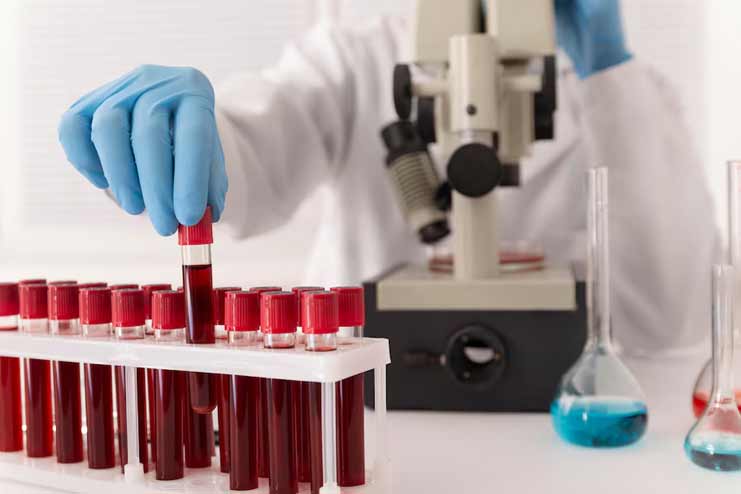
To diagnose jaundice, your doctor will review your medical history and perform a physical examination. They will check for any tumors in the abdomen and examine the firmness of the liver.
A firm liver often suggests cirrhosis, while a hard liver texture may indicate cancer.
Liver function tests may be recommended to assess liver performance, and several blood tests may be prescribed to measure bilirubin levels. These tests include:
- Bilirubin Tests: To measure levels of conjugated and unconjugated bilirubin in the body.
- Complete Blood Count: To measure red and white blood cells along with platelets.
- Tests for Hepatitis A, B, and C: To determine liver infection.
The doctor may also suggest imaging tests, such as MRI, CT scan, and ultrasound, to detect any obstructions to the liver.
A liver biopsy, which involves examining a liver sample obtained by inserting a needle, may also be prescribed to check for inflammation, cirrhosis, or cancer.
Treatment of Jaundice
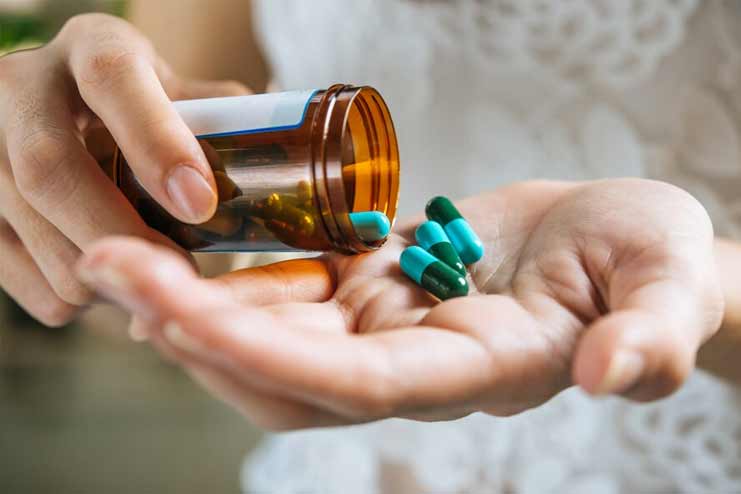
In most cases, jaundice treatment focuses on addressing its underlying cause rather than just the symptoms.
Some treatments to address jaundice include:
- Jaundice Caused by Anemia: It can be managed by increasing iron levels through iron supplements or iron-rich foods.
- Jaundice Due to Hepatitis: It requires medical attention and may be treated with steroid or antiviral medications.
- Jaundice Triggered by Certain Medications: It can be managed by changing the medication or using an alternative.
- Jaundice Caused by Obstructions: It may require surgical removal of the obstruction.
Additionally, home remedies may help manage jaundice symptoms. While these remedies aren’t officially recognized as treatments, they may provide some relief. Some home remedies for jaundice are listed below.
Home Remedies to Cure Jaundice Fast
-
Basil Leaves
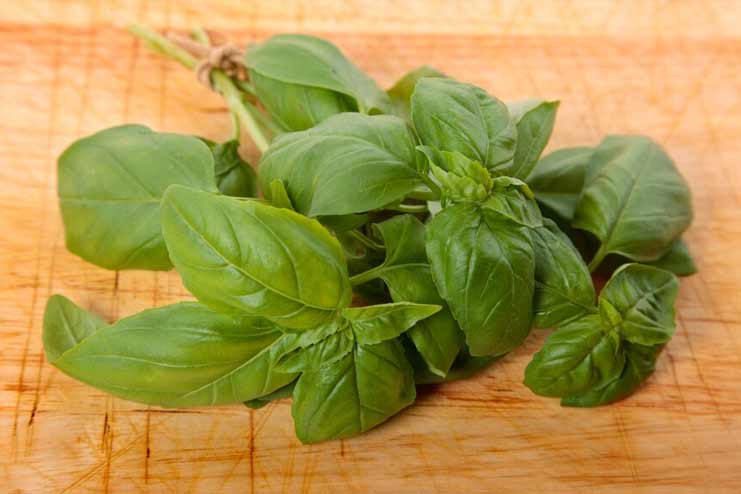
To use basil leaves for jaundice, make a paste of 10-15 basil leaves and mix it with half a glass of radish juice. For best results, drink this juice daily for 2-3 weeks.
-
Lemon

Lemon has anti-inflammatory properties that help treat jaundice and unblock bile ducts. Squeeze two lemons and mix the juice with a glass of water. Drink this mixture at least three times daily to help prevent liver cell damage.
-
Gooseberry

Gooseberry is rich in vitamin C, which helps alleviate various jaundice symptoms. You can consume fresh gooseberries daily or make a juice by blending them with water and straining the mixture.
-
Barley

Boil a cup of barley in three liters of water and let it simmer on medium heat for at least 3 hours. Strain the water and drink it throughout the day. Drink this barley water daily to help treat jaundice.
-
Papaya Leaves

Papaya leaves are considered an effective home remedy for jaundice. Make a paste from papaya leaves, add a teaspoon of honey, and consume this mixture daily for 2-3 weeks.
Conclusion
Jaundice is a visible indicator of underlying health issues, particularly related to liver function and bilirubin processing. Understanding its causes, symptoms, and diagnosis methods is crucial to ensure timely treatment.
However, though many diseases may cause jaundice, proper management calls for treatment of the causative disease, be it due to liver disease, hemolytic anemia, or side effects of drugs.
Alongside medical treatments, certain home remedies may provide relief and support recovery. Maintaining a healthy diet and lifestyle, including regular exercise and minimal alcohol intake, can help reduce the risk of developing jaundice.
Being proactive about liver care and recognizing the symptoms of jaundice as early as possible helps improve the chances for quick recovery.
-
Nov 2017Written by Prajakt
-
Nov 2024Edited by Lakshmi Gayatri
In this Article













